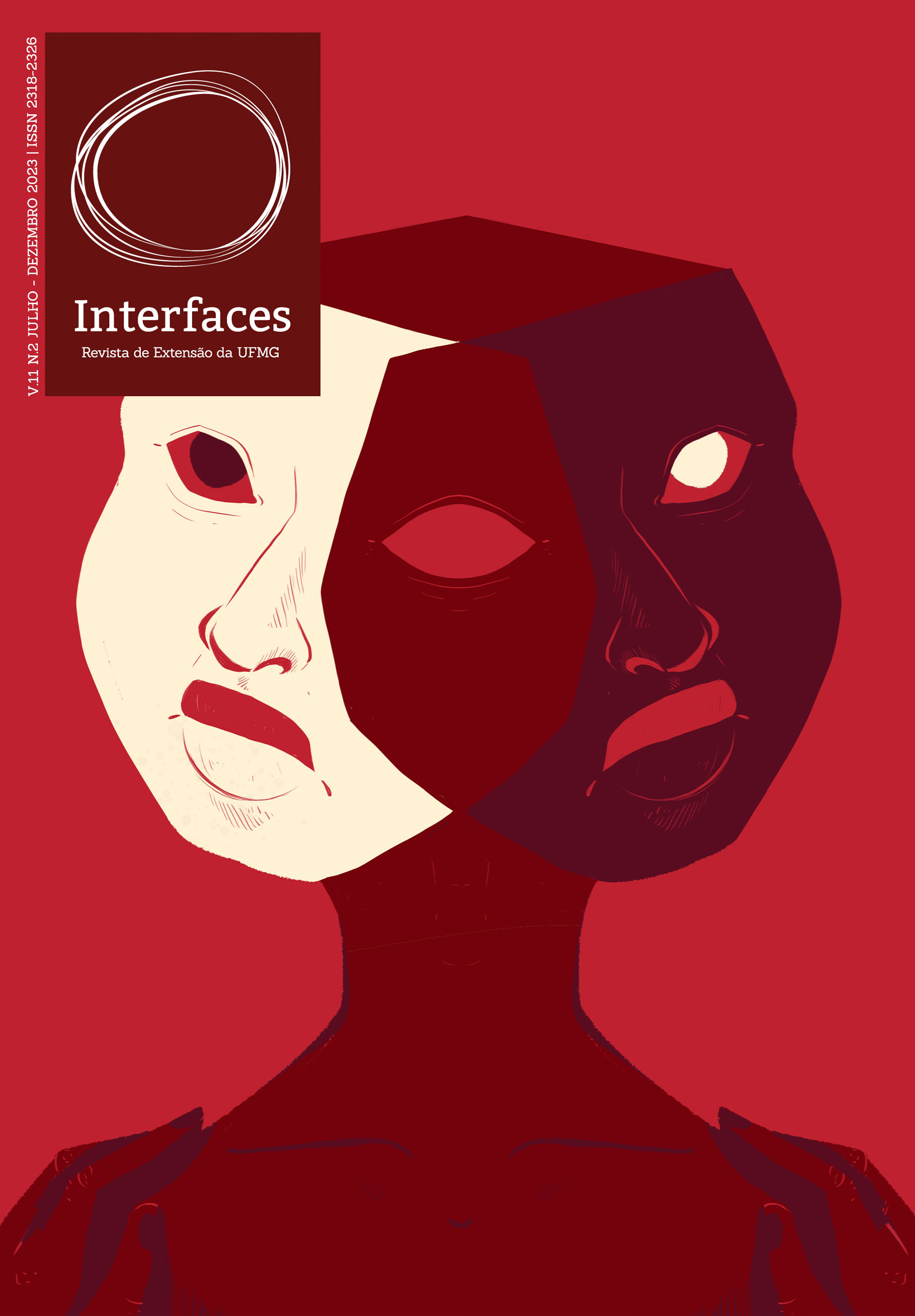A PERNA MAIS CURTA DO "TRIPÉ"
SOBRE OS DESAFIOS E DIFICULDADES DE REALIZAR EXTENSÃO ACADÊMICA NO BRASIL
Palavras-chave:
Educação Superior, Extensão, CurricularizaçãoResumo
A realidade atual brasileira apresenta profundos desafios políticos, econômicos e culturais para a efetivação de uma educação de qualidade e de uma sociedade mais justa, dificultando-se a realização dos princípios constitucionais da autonomia universitária e da indissociabilidade entre Ensino, Pesquisa e Extensão. Apesar dessa base tríplice, sabemos que a Extensão foi integrada após a consolidação e a legitimidade histórica do Ensino e da Pesquisa. As marcas históricas dessa subalternidade estão expressas na falta de interesse e, até mesmo, de compreensão de seu conceito por parte significativa dos professores universitários. A falta de valorização institucional, refletida nos financiamentos escassos e na baixa consideração para a progressão/promoção funcional dos docentes, aprofunda o desinteresse; além disso, dificulta a integralização da Extensão no currículo dos cursos superiores e, consequentemente, restringe seu papel formativo em articulação ao Ensino e à Pesquisa. Diante desses e outros assuntos, este artigo propõe análises e reflexões sobre (1) desafios para a realização da Extensão Acadêmica no Brasil, (2) dificuldades de realizar Extensão Acadêmica no Brasil e (3) desafios e dificuldades no processo de Curricularização da Extensão, relacionados às metas estabelecidas nas Diretrizes para a Extensão na Educação Superior Brasileira (CNE/CES nº 7, de 18 de dezembro de 2018).
Referências
Addor, F.; Lianza, S. (Org.). (2015). Percursos na extensão universitária: saindo da torre de marfim. Rio de Janeiro: Editora UFRJ; Faperj.
Albuquerque, E. M. (2009) Avaliação da técnica de amostragem “Respondent-driven Sampling” na estimação de prevalências de Doenças Transmissíveis em populações organizadas em redes complexas. Escola Nacional de Saúde Pública Sérgio Arouca – ENSP; Rio de Janeiro: Ministério da Saúde – Fiocruz. Dissertação de Mestrado, 99p.
Brasil (2020). [Constituição (1988)]. Constituição da República Federativa do Brasil de 1988. Brasília, DF: Presidente da República. http://www.planalto.gov.br/ccivil_03/constituicao/constituicao.htm.
Brasil (2014). Lei Federal 13.005, de 25 de junho de 2014. Aprova o Plano Nacional de Educação - PNE e dá outras providências. Brasília, DF, 25. Jun. 2014. http://www.planalto.gov.br/ccivil_03/_ato2011-2014/2014/lei/l13005.htm.
Brasil (2018). Ministério da Educação. Diretrizes para a Extensão na Educação Superior Brasileira. Conselho Nacional de Educação. Resolução CNE/CES n. 7, de 18 de dezembro de 2018. http://portal.mec.gov.br/index.php?option=com_docman&view=download&alias=1042 51-rces007-18&category_slug=dezembro-2018-pdf&Itemid=30192.
Crocco, F. L. T.; Combinato, D. S.; Kleba, J. B.; Cruz, C. C.; Oliveira, N. N. P. (2021). Engenharia e extensão universitária numa perspectiva CTS: teoria e prática no processo ensino-aprendizagem. In: Baumgarten, M; Guivant, J. (Org.) Caminhos da ciência e tecnologia no Brasil: políticas públicas, pesquisas e redes. Porto Alegre: Editora da UFRGS.
Demo, P. (1996) Extensão: a má consciência da universidade. In: Cadernos de Extensão Universitária, Ano 2, No 5, p. 21-30.
Demo, P. (2001). Lugar da Extensão. In: Faria, D. S. (Org.). Construção conceitual da Extensão Universitária na América Latina. Brasília: Universidade de Brasília.
Deus, S. (2020). Extensão universitária: trajetórias e desafios. Santa Maria, RS: Ed. PRE-UFSM.
Figueiredo, S. C. G. (2020). Atividades de Extensão: a Curricularização da Extensão no Ensino Superior. In: Asensi, F. (Org.). Produção Acadêmica e Pluralidade. Rio de Janeiro: Pembroke Collins.
Forproex. (2006) Indissociabilidade entre ensino-pesquisa-extensão e flexibilização curricular: uma visão da extensão. Porto Alegre: UFRGS; Brasília: MEC/SESu.
Forproex. (2012) Política Nacional de Extensão Universitária. Manaus-AM. https://proex.ufsc.br/files/2016/04/Pol%C3%ADtica-Nacional-de-Extens%C3%A3o-Universit%C3%A1ria-e-book.pdf.
Fraga, L. S. (2019) As relações entre universidade e sociedade a partir da extensão ou por que não é suficiente ir às praças mostrar o que a universidade faz. Revista do EDICC, v. 6. 6º Encontro de Divulgação de Ciência e Cultura – UNICAMP, 11-20. https://revistas.iel.unicamp.br/index.php/edicc/article/view/6507.
Freire, P. (2001). Extensão ou comunicação? 11. ed. Rio de Janeiro: Paz e Terra.
Freire, S. M. (2011). Desafios da Extensão Universitária na Contemporaneidade. Revista Conexões da UEFG, v.7 n. 1, 8-15. https://revistas2.uepg.br/index.php/conexao/article/view/3670.
Minayo, M. C. S. (Org.); Deslandes, S. F.; Gomes, O. C. N. R. (2015) Pesquisa Social: teoria, método e criatividade. 34. Ed. Petrópolis, RJ: Vozes.
Nez, E.; Esser, F. (2016). A extensão universitária sob foco de estudo: reflexões sobre limites e desafios. Interagir: pensando a extensão, [S.l.], n. 21, 01-16, jun. https://doi:https://doi.org/10.12957/interag.2016.15543.
Novaes, H. T.; Dias, R. (2009) Contribuições ao Marco Analítico-Conceitual da Tecnologia Social. In: Dagnino, R. P. et al. Tecnologia social: ferramenta para construir outra sociedade. Campinas, SP.: IG/UNICAMP.
Pereira, N. F. F., Vitorini, R. A. S. (2019) Curricularização da Extensão: desafio da Educação Superior. Interfaces - Revista de Extensão da UFMG, 7(1), 19-29. https://periodicos.ufmg.br/index.php/revistainterfaces/article/view/19047.
Triviños, A. N. S. (1995) Introdução à Pesquisa em Ciências Sociais – A Pesquisa Qualitativa em Educação. 4ª Edição. São Paulo: Editora Atlas.
Wolff, R. P. (1993). O ideal da universidade. São Paulo: Editora Unesp.


